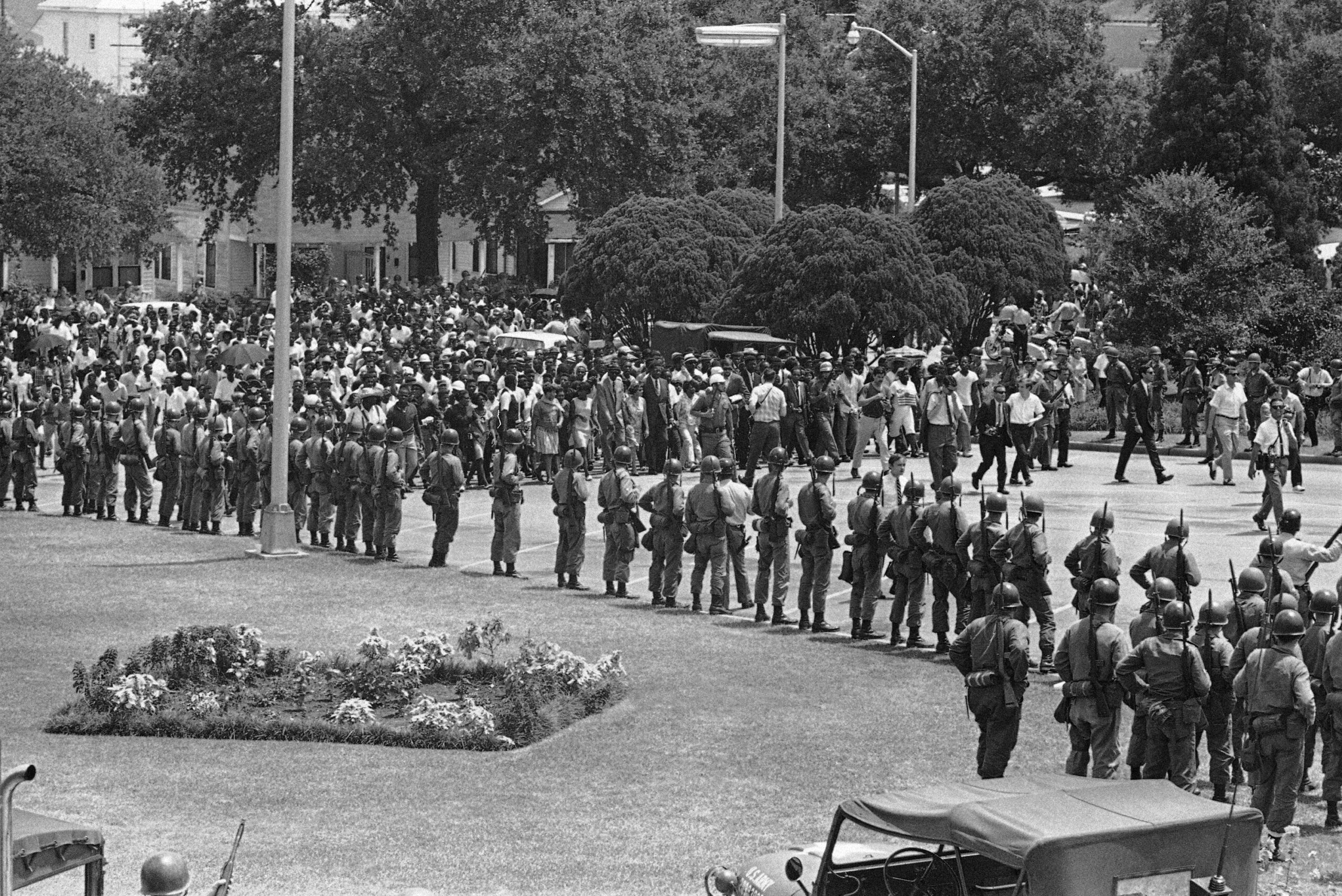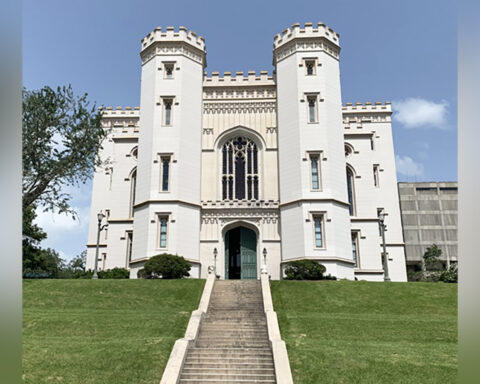The Louisiana Civil Rights Trail is steadily growing after officials in the state unveiled a fourth marker this week honoring a historic march against anti-Black violence.
The new marker, unveiled on Monday, is in Young Park in Baton Rouge — marking the 105-mile march from Bogalusa to Baton Rouge. The march, known as the Bogalusa Civil Rights March, took place in 1967, four years after the March on Washington. Started by activist A.Z. Young, the 10-day march was a protest against the general treatment of Black Americans, following years of harassment by the KKK in Louisiana.
Monday’s unveiling ceremony was attended by Lt. Gov. Billy Nungesser, Baton Rouge Mayor-President Sharon Weston Broome and the families of civil rights leaders.
“It was an honor to be here today with the families of the leaders in this movement,” said Nungesser on Twitter on Monday.
“Yet another great day for celebrating the deep and storied history of Baton Rouge,” Broome wrote on Twitter.
With Monday’s addition, the Louisiana Civil Rights Trail now has four markers in place across the state. The first three were added earlier this year, a project spearheaded by Nungesser and carried out by GMc+Co Strategic Communications over two years.
“We traveled about 3,000 miles and held about 22 meetings around the state, and really got to hear firsthand from the people in the community,” Glenda McKinley, who led the project with GMc+Co, told CNN in May. “Some of (the stories) were oral history, some of them were people actually involved in the movement, and it became very clear that we didn’t need to tell the story — the voices who were still here could tell the story.”
Each location on the trail is marked by a 6-foot tall steel half-male, half-female silhouette, supposed to resemble a protester holding a picket sign.
The first marker was placed outside Dooky Chase’s Restaurant in New Orleans, a sandwich shop that became a popular forum for leaders like Thurgood Marshall, Rev. A.L. Davis, the Rev. Avery Alexander and Virginia Durr to gather.
Another was placed at the Old State Capitol building in Baton Rouge, honoring the massive bus boycott in 1953 that went on to inspire the Montgomery bus boycott.
Little Union Baptist Church, in Shreveport, also has a marker, noting the church as the last place Martin Luther King Jr. spoke publicly before he was killed in 1968.




